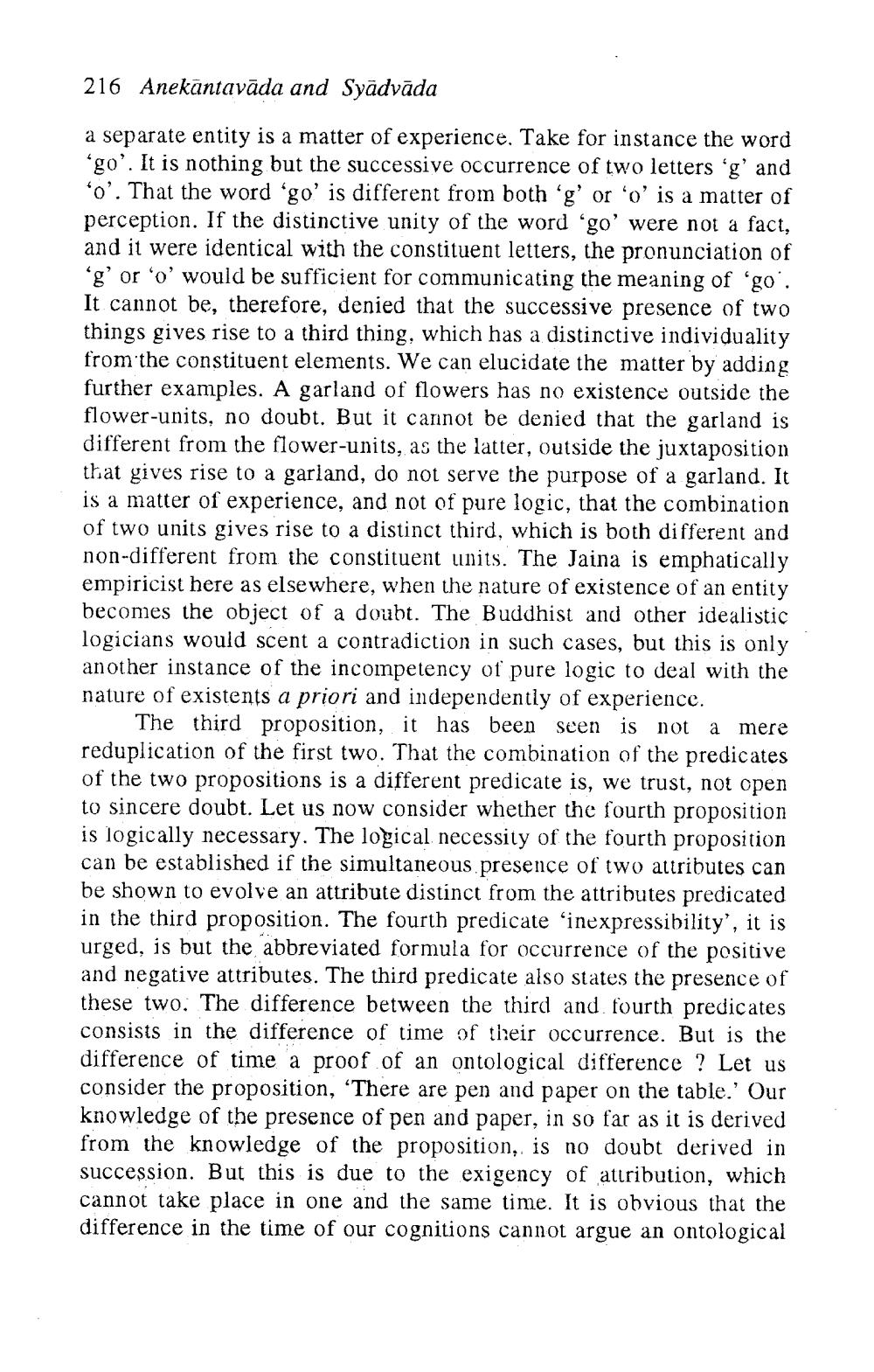________________
216 Anekāntavāda and Syādvāda
a separate entity is a matter of experience. Take for instance the word go'. It is nothing but the successive occurrence of two letters 'g' and o'. That the word 'go' is different from both 'g' or 'o' is a matter of perception. If the distinctive unity of the word 'go' were not a fact, and it were identical with the constituent letters, the pronunciation of 'g' or 'o' would be sufficient for communicating the meaning of 'go'. It cannot be, therefore, denied that the successive presence of two things gives rise to a third thing, which has a distinctive individuality from the constituent elements. We can elucidate the matter by adding further examples. A garland of flowers has no existence outside the flower-units, no doubt. But it cannot be denied that the garland is different from the flower-units, as the latter, outside the juxtaposition that gives rise to a garland, do not serve the purpose of a garland. It is a matter of experience, and not of pure logic, that the combination of two units gives rise to a distinct third, which is both different and non-different from the constituent units. The Jaina is emphatically empiricist here as elsewhere, when the nature of existence of an entity becomes the object of a doubt. The Buddhist and other idealistic logicians would scent a contradiction in such cases, but this is only another instance of the incompetency of pure logic to deal with the nature of existents a priori and independently of experience.
The third proposition, it has been seen is not a mere reduplication of the first two. That the combination of the predicates of the two propositions is a different predicate is, we trust, I to sincere doubt. Let us now consider whether the fourth proposition is logically necessary. The logical necessity of the fourth proposition can be established if the simultaneous presence of two attributes can be shown to evolve an attribute distinct from the attributes predicated in the third proposition. The fourth predicate ‘inexpressibility', it is urged, is but the abbreviated formula for occurrence of the positive and negative attributes. The third predicate also states the presence of these two. The difference between the third and fourth predicates consists in the difference of time of their occurrence. But is the difference of time a proof of an ontological difference ? Let us consider the proposition, ‘There are pen and paper on the table.' Our knowledge of the presence of pen and paper, in so far as it is derived from the knowledge of the proposition, is no doubt derived in succession. But this is due to the exigency of attribution, which cannot take place in one and the same time. It is obvious that the difference in the time of our cognitions cannot argue an ontological




